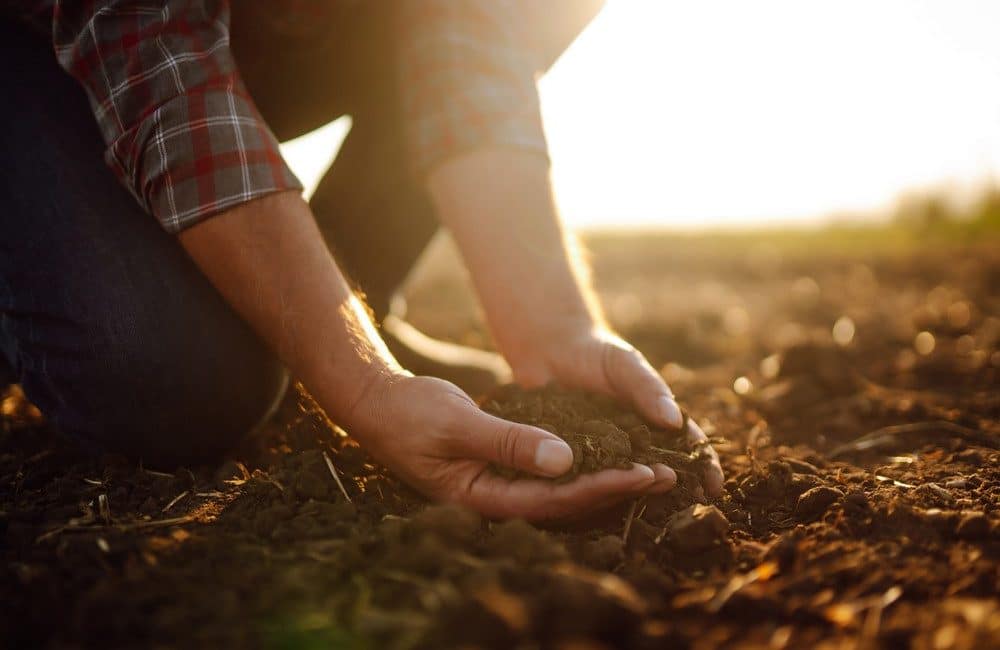Do you have cracked or compacted soil? Whether you are in the agricultural industry or are a self-proclaimed backyard gardener, you must have seen or heard about clay soil or the soil becoming hard making it even harder for plants to grow and thrive.
When your soil is hard to break, it prevents the roots from getting the adequate amount of oxygen and water, making it extremely difficult for the grass, plants, or crops to grow. Consider it this way: you are driving towards your destination, but there are too many factors blocking your way. No matter how loud you honk or how strongly you feel about reaching your destination, you will not be able to reach it if there is a massive traffic jam between you and your destination. To make things worse, there could be roadblocks, barriers, buildings, and other factors making it close to impossible for you to keep moving on.
Now apply the same concept to your soil. If your soil is hard and compacted (just like the traffic jam), there will be too many barriers preventing your roots in getting the required amount of oxygen, water, and the essential nutrients that the plants need. No matter how good the fertilizer or plant food you provide on the surface, the goodness will never reach the roots. When your soil is hard to break, it holds less amount of water and air, making it a challenge for plants to survive and thrive.
You need something that could break down this stubborn soil. While clay soil tends to be compact, your soil could have become hard and compact due to accumulation of rainwater, heaving flooding, and foot traffic, etc. While the problem sounds massive, the solution is rather simple. One word: Gypsum!
Gypsum, also known as Calcium Sulfate Dihydrate, is the magic ingredient that breaks up compacted soil into crumblier pieces, making way for aeration and drainage of the soil. Gypsum reduces erosion and immensely benefits the soil health without changing its pH level. However, when applied to clay soil, which is alkaline in nature, gypsum reduces the pH level and drastically improves the soil structure. And as a bonus, the soil also gets easier to work with.
As Calcium Sulfate Dihydrate, or gypsum, contains calcium, sulfur, and oxygen, all these ingredients are extremely important for the farming industry as well as for your lawns, shrubs, vegetable garden, and flower beds. An easy and extremely effective way to apply gypsum to your soil is using EcoGEM®’s Soil Enhancer. The EcoGEM®’s Soil Enhancer is a complete soil management system with Calcium Sulfate Dihydrate being its key ingredient. In addition to breaking down the heavy clay soil, there are uncountable benefits that EcoGEM®’s Soil Enhancer provides including:
- When your soil is loose and crumbly, it can hold more water and air. Gypsum is ideal for breaking compacted soil.
- Gypsum releases three crucial elements – calcium, sulfur, and oxygen – into the soil for proper growth of the plants.
- The solubility rate of gypsum is slow, so when added to your plants, the sulfate will stay in the soil for several months or growing seasons, creating an ideal environment for the long-term health of your plants.
- Excessive sodium can slow down the plant growth and can even cause damage to the leaves. Gypsum removes excessive sodium from saline soils.
- Gypsum increases water penetration and soil aeration.
- Gypsum prevents soil erosion.
- Gypsum maintains the pH level of your hard, but otherwise healthy, soil.
- Gypsum also reverses aluminum toxicity in the soil. Excess of aluminum in your soil can cause root development and growth issues in the crops.
Do you still need more reasons? Apply EcoGEM®’s Soil Enhancer and see the difference yourself. Order it today from our EcoGEM®’s online store or give us a call at (303) 500-6944!

